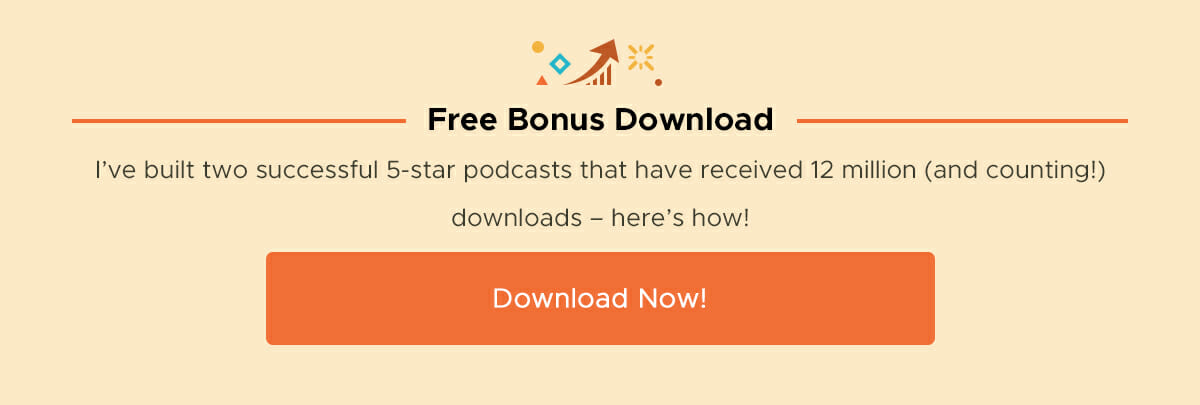So, you want your podcast to be the “Next Big Thing.” Well, guess what? There are currently more than 750,000 podcasts out there, and that’s a lot of competition. That doesn’t mean you can’t grow yours or that it won’t be successful; you just have to be strategic.
Despite the competition, there are plenty of reasons to try. A successful podcast can be an effective marketing channel for your brand, since it can help you develop an intimate relationship with your customers or become seen as a thought leader with your peers – which translates to more sales and more business opportunities. In fact, my Growth Everywhere podcast has brought in some of our best clients at Single Grain.
But there are plenty of benefits for consumers as well. Podcasts are convenient, for one. You can listen in the car, while walking, at the gym – no matter where you are. They’re an easy way to absorb information on topics you’re interested in or material you need to learn to be more successful in your career.
Building a new or struggling podcast into a popular one requires a lot of work. But if you do it right, the ROI is there.
How to Define Podcast Success
So what makes a podcast successful? Popularity is one factor, although there aren’t a ton of metrics on that just yet. But to join the big ad-supported podcast networks, you typically need about 50,000 monthly downloads. That’s a good baseline for defining “popular”.

If you’re in a niche market, however, “popular” might look a lot different. Maybe the biggest podcast in your industry only gets 20,000. Maybe it’s even less than that.
A better way to measure the success of your podcast is to understand what your business goals are for it. If you’re launching (or have launched) a marketing channel, what do you want it to accomplish? It’s important to know why you want a podcast. Don’t do it just because you think you should or because your competitors are podcasting.
Still not sure what you’re trying to achieve? Here are a few goals you might have in mind for your podcast:
- Sign-ups: Maybe you have a newsletter list or a product trial and you want to use your podcast to drive those sign-ups. How many do you want to get? Over what period of time?
- Leads: Maybe you’re a service business and you want to use the podcast to showcase your authority and expertise to bring in more clients.
- Connections: Maybe you’re a new business and you just want to make connections with big names in your industry. An interview show could be a great way to accomplish this.
- Awareness: Maybe you just want people to know who you are and what your business is.
Whatever your goals are, put some actual numbers behind them so that you can measure whether or not your podcast is helping you meet them. As far as measurement goes, sign-ups and leads are easy to track. Connections may be harder to quantify, but if you can get big-name guests in your industry, then you’ve accomplished your goal. For awareness, maybe it’s just getting people to your website or seeing more brand mentions for your business online.
Make sure you have a system in place to determine your ROI and know that your investment might take a while to show the returns you’re looking for. Anyone can launch a podcast. But not everyone who does will be successful – no matter what metrics they’re measuring.
Four things that’ll help you achieve your stated goals include:
- Consistency
- Commitment
- Time
- Promotion
Let’s look at those four elements in greater detail.
Dive Deeper:
Consistency
If you want people to become loyal listeners of your podcast, you have to let them know what they can expect from it and, more importantly, you need to deliver on that promise. That means setting a schedule for podcasting, communicating that schedule to your audience and then sticking to it.
When podcasters are first starting out, they don’t usually know how often they’ll be able to produce a podcast or how long it will take. So they try not to commit to a schedule. But this is a mistake. If you launch on a Monday and someone listens to the first episode that day and then you don’t post another one for three weeks, they will have forgotten you. They might get around to listening to the next episode or they may not; either way, you’ll definitely get pushed further down the queue than the ones that are published regularly.
You also have to be strategic about choosing the days when you publish. If your competitor has a popular podcast that goes live on Tuesdays, you definitely don’t want yours to go live on that day.
As an example, Neil and I have been hosting our daily podcast Marketing School for two and a half years. We do it when I’m sick. We do it when Neil’s traveling. No matter what’s going on, we still do it. Because being consistent is one of the reasons why we have almost one million downloads every month.
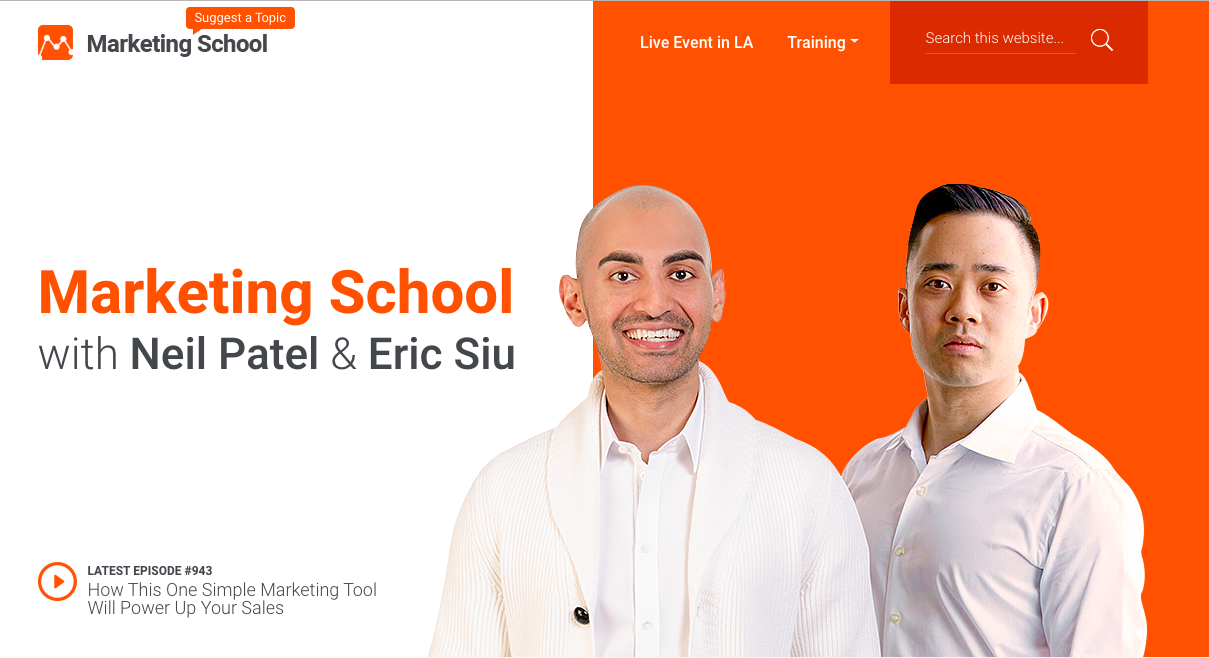
Commitment
If you want to have a popular podcast, you have to be in it for the long haul. Joe Rogan has one of the most popular podcasts in America (called The Joe Rogan Experience), and he’s been doing it since 2009. He didn’t start out popular; he just kept doing it, and that built momentum over time.
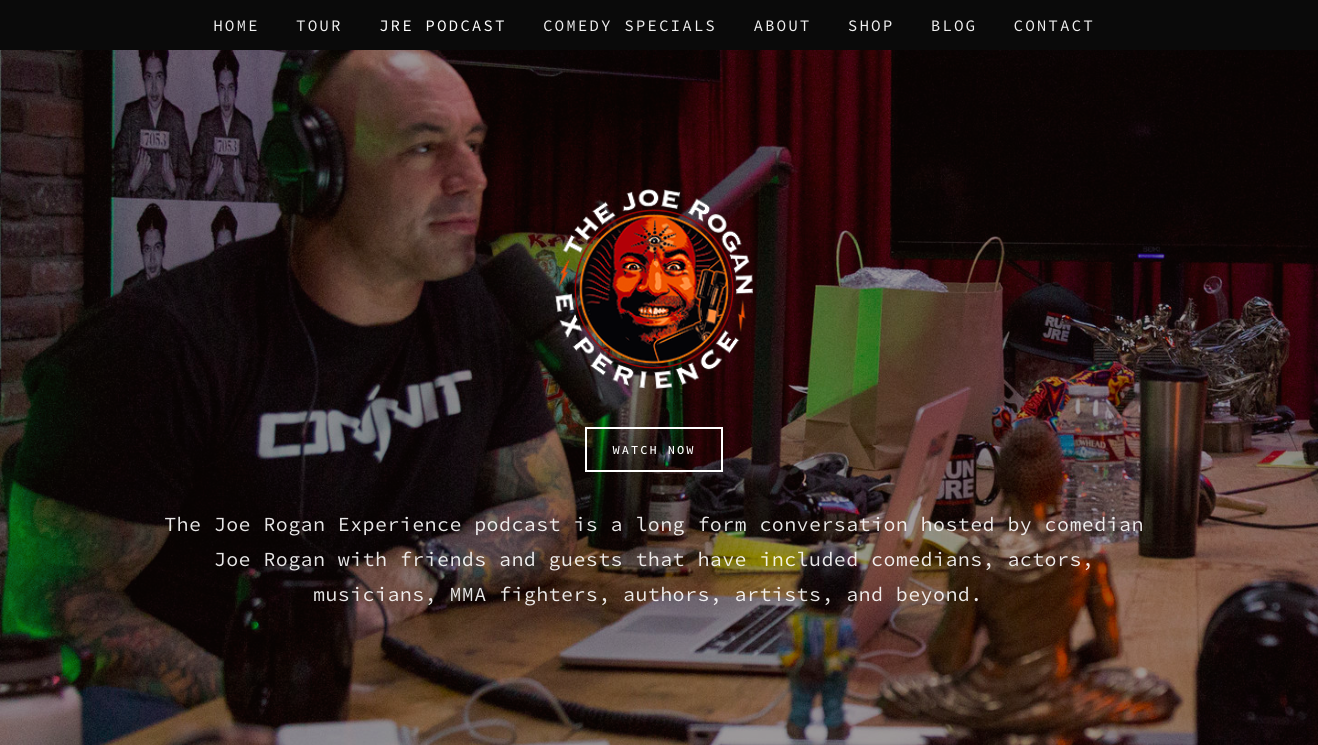
It was the same with my Growth Everywhere podcast. When I first started, I was spending six hours a week on it and I was only getting nine downloads a day. That’s a terrible ROI. But I kept going and now, five years later, I’m at about 100,000 per month. I just had to commit to doing it for as long as it took to make it happen.
Time
Unlike content for other marketing channels, podcasts require a lot of hands-on time – especially when you’re just getting started.
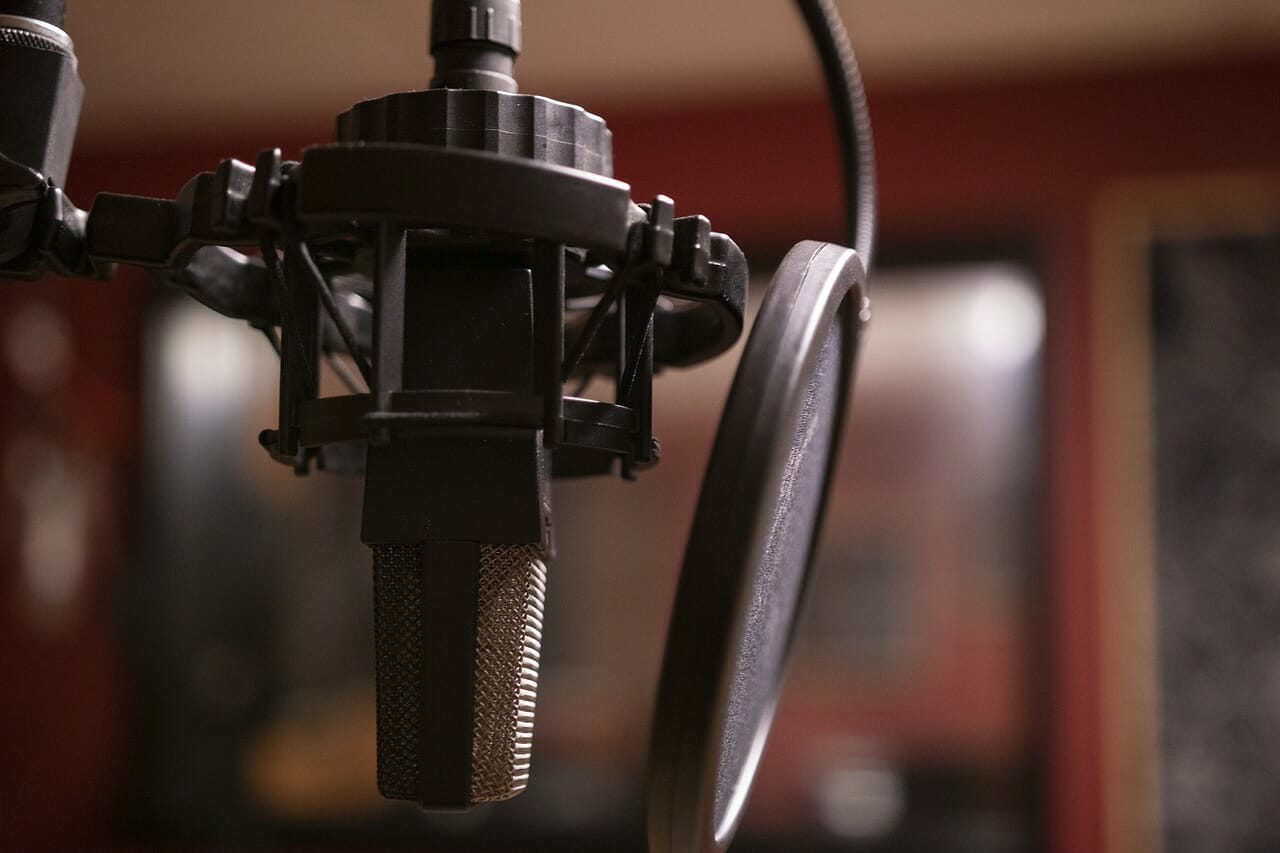
You have to source music, book guests if it’s an interview show, and plan out your topics. Then you have to record. Then edit. Then publish and promote it. You either have to have the time to do all of those things on a regular basis or have the money to outsource them.
Time is also an important factor in podcast success. It won’t happen overnight. I mean, you might have the next Serial by next week, but statistically speaking, you probably won’t.

In fact, most new podcasters should expect to be podcasting for 2-3 years before their audience really starts to become substantial.
Dive Deeper:
Promotion
You could have the best podcast in the world, but if no one can find it, you’re just shouting into the wind. Remember, there are more than 750,000 podcasts out there. You have to help people find you.
The first thing you need to do is get your podcast listed in directories, like:
Make sure you’re strategic about tagging – you don’t want to choose keywords that are ultra-competitive, but you do want to be sure you’re choosing ones that people are actually searching for.
Next, use all your marketing channels to promote your podcast:
- Push each episode out on all your social media.
- Have a show page on your website with transcripts and show notes.
- Send email announcements when new episodes go live.
- Run paid media.
Basically, anything you’re doing for the rest of your content should be done for your podcast.
Don’t forget about live events, either. Taping a live show in a community where a lot of your target audience lives is a great way to introduce more people to you and your podcast, in addition to being an excellent way to deepen existing relationships. Plus, if you’re at the point where you have a large, devoted audience, you can charge for tapings and create another revenue stream, as we’re doing with our free Marketing School live event in Los Angeles.
Tap into your base of existing listeners. Ask them to rate, review and subscribe to your podcast in every episode.
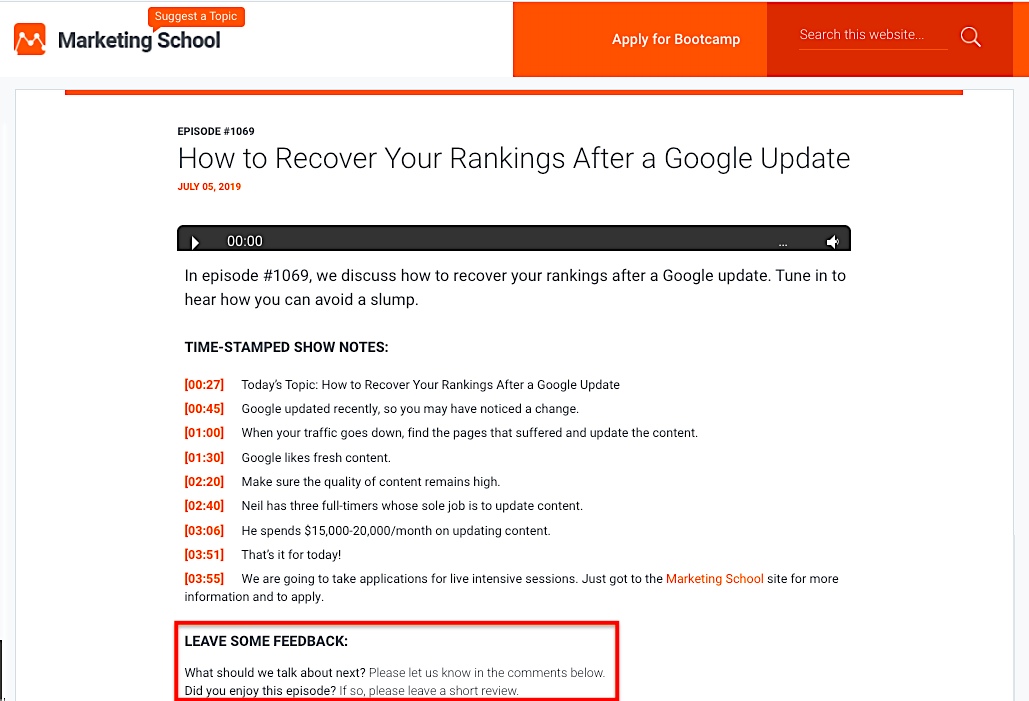
And don’t forget about other podcasts. Being a guest on other shows in your industry opens you up to more potential clients and customers – and if you have relevant personalities on your show, you’ll get access to their followers, too.
Of course, if you already have a large number of followers and subscribers, you’ll be able to grow your podcast audience much more quickly than if you don’t. When we started Marketing School, Neil and I both pushed it out to our email lists. Because our lists were already a decent size, we were able to get to 150,000 downloads right out of the gate and build on that pretty quickly.
That’s why, if you want to do a podcast but don’t have the infrastructure to promote it, it might make sense to focus on raising your online profile first. Invest in that effort first, and it’ll make it much easier to grow your show when you do decide to start podcasting.
Dive Deeper:
It’s all About Building Value
Here’s a hard truth: you can do all the things I’ve listed above and still not succeed. Why? Because if you aren’t providing true value for your target audience, they aren’t going to want to listen. You have to entertain or educate them – or, hopefully, both.
Podcasting strategy comes down to solving problems for your audience. What do they want to learn? What questions do they need answered? That’s what your podcasts – as well as all of your other content assets, from your blog posts to your YouTube videos – need to address. People who consume my content want to learn about more about marketing, especially SEO. So that’s what I give them.
You can take that strategy literally and actually devote episodes to answering listener questions. Or you can take a look at what they’re searching for online or asking your customer service representatives, and use that as inspiration. Just make sure that they come away from your podcast more informed and more positive than they were before they started listening.
The Bottom Line: Building a Popular Podcast Is a lot of Work
That’s the bad news. The good news is, it can be worth it. And as your podcast – and by extension, your business – becomes more successful, you can start to outsource a lot of the heavy lifting of podcasting to people who are faster and better at it than you.
Neil and I have an editor for Marketing School (thank you, Noah!). We use The Network Studios for other aspects of production:
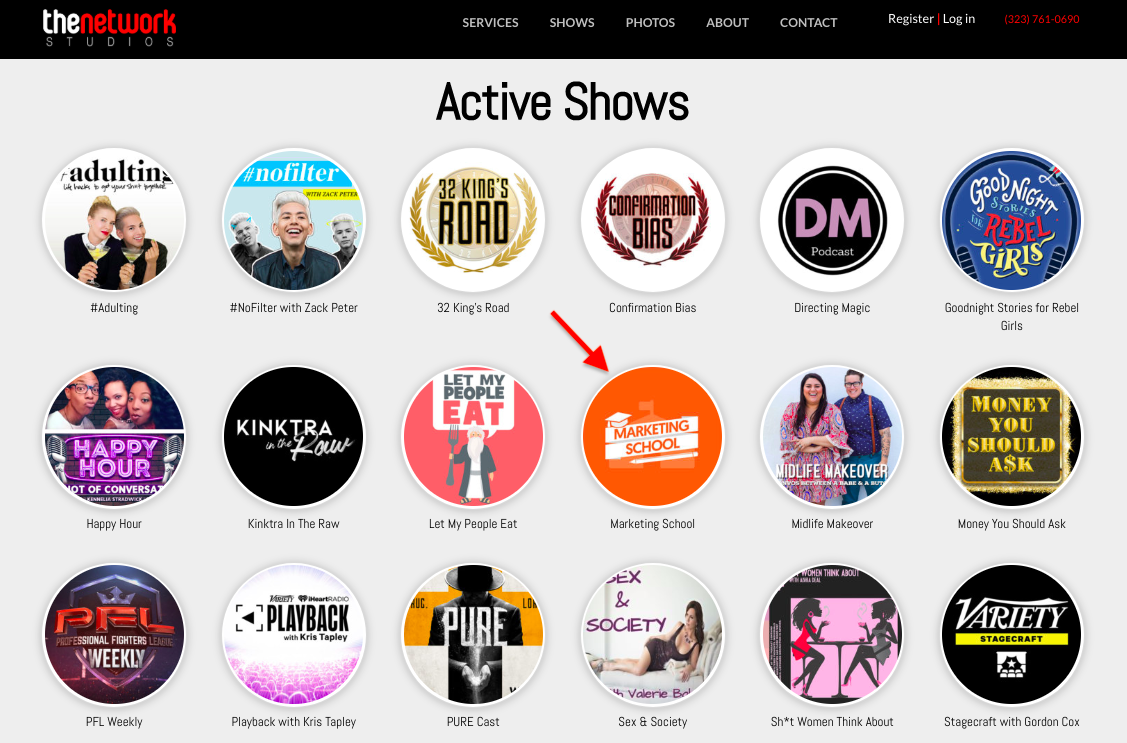
Tapping into workflow resources like these allows us to focus more on the content and promotion, which is what we’re good at.
Once you build an audience, you can find ways to start monetizing it if you’re interested in doing that. I’m not right now, but who knows what the future will bring?
The reason I have two podcasts and plan to keep them going for the foreseeable future is because it’s a really great way for me to build relationships with people at scale. And that’s what it’s all about, for me. You might have different goals, and that’s okay. As long as you’re working hard, creating value and growing your audience, you’re doing it right.
